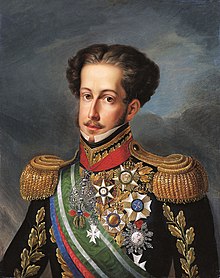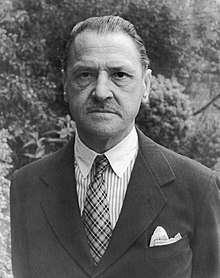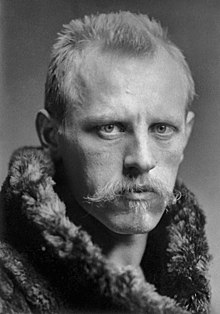Portal:History
The History Portal
History (derived from Ancient Greek ἱστορία (historía) 'inquiry; knowledge acquired by investigation') is the systematic study and documentation of human past. History is an academic discipline which uses a narrative to describe, examine, question, and analyze past events, and investigate their patterns of cause and effect. Historians debate which narrative best explains an event, as well as the significance of different causes and effects. Historians debate the nature of history as an end in itself, and its usefulness in giving perspective on the problems of the present.
The period of events before the invention of writing systems is considered prehistory. "History" is an umbrella term comprising past events as well as the memory, discovery, collection, organization, presentation, and interpretation of these events. Historians seek knowledge of the past using historical sources such as written documents, oral accounts or traditional oral histories, art and material artifacts, and ecological markers. History is incomplete and still has debatable mysteries.
Stories common to a particular culture, but not supported by external sources (such as the tales surrounding King Arthur), are usually classified as cultural heritage or legends. History differs from myth in that it is supported by verifiable evidence. However, ancient cultural influences have helped create variant interpretations of the nature of history, which have evolved over the centuries and continue to change today. The modern study of history is wide-ranging, and includes the study of specific regions and certain topical or thematic elements of historical investigation. History is taught as a part of primary and secondary education, and the academic study of history is a major discipline in universities.
Herodotus, a 5th-century BCE Greek historian, is often considered the "father of history", as one of the first historians in the Western tradition, though he has been criticized as the "father of lies". Along with his contemporary Thucydides, he helped form the foundations for the modern study of past events and societies. Their works continue to be read today, and the gap between the culture-focused Herodotus and the military-focused Thucydides remains a point of contention or approach in modern historical writing. In East Asia a state chronicle, the Spring and Autumn Annals, was reputed to date from as early as 722 BCE, though only 2nd-century BCE texts have survived. The title "father of history" has also been attributed, in their respective societies, to Sima Qian and Ibn Khaldun. (Full article...)
Featured picture
Did you know (auto generated)

- ... that no one laughed at the worst joke in legal history?
- ... that Timo Meier became the first player in San Jose Sharks franchise history to score five goals in one game when he was 25?
- ... that the compilation of the Wu shu was hampered by the execution of two members of the committee compiling the text?
- ... that American Colossus, a history book that describes how a banker bailed out the U.S. government in 1895, was published around a time when the U.S. government bailed out banks?
- ... that new employees of a business headquartered in the Editors Building chose their office decorations from a 7,000-piece collection of historic memorabilia of Washington, D.C.?
- ... that Dean Faithfull was the oldest player in NCAA Division II football history?
Fridtjof Wedel-Jarlsberg Nansen (Norwegian: [ˈfrɪ̂tːjɔf ˈnɑ̀nsn̩]; 10 October 1861 – 13 May 1930) was a Norwegian polymath and Nobel Peace Prize laureate. He gained prominence at various points in his life as an explorer, scientist, diplomat, humanitarian and co-founded the Fatherland League.
He led the team that made the first crossing of the Greenland interior in 1888, traversing the island on cross-country skis. He won international fame after reaching a record northern latitude of 86°14′ during his Fram expedition of 1893–1896. Although he retired from exploration after his return to Norway, his techniques of polar travel and his innovations in equipment and clothing influenced a generation of subsequent Arctic and Antarctic expeditions. He was elected an International Member of the American Philosophical Society in 1897. (Full article...)On this day
August 27: Independence Day in Moldova (1991)
- 410 – The sacking of Rome by the Visigoths ended after three days.
- 1896 – In the shortest recorded war in history (pictured), the Sultanate of Zanzibar surrendered to the United Kingdom after less than an hour of conflict.
- 1955 – The first edition of the Guinness Book of Records was published.
- 1964 – South Vietnamese junta leader Nguyễn Khánh entered into a triumvirate power-sharing arrangement with rival generals Trần Thiện Khiêm and Dương Văn Minh, both of whom had been involved in plots to unseat Khánh.
- 2009 – The Myanmar military junta and ethnic armies began three days of violent clashes in the region of Kokang.
- Henry Edwards (b. 1827)
- Rufus Wilmot Griswold (d. 1857)
- Don Bradman (b. 1908)
- Ieva Simonaitytė (d. 1978)
Selected quote
Even as the fingers of the two hands are equal, so are human beings equal to one another. No one has any right, nor any preference to claim over another. You are brothers.
— Muhammad, 7th century Islamic prophet
Related portals
More Did you know...
- ... that on 26 April 1881 HMS Doterel (pictured) exploded, killing 143 of the 155 crew members?
- ... that causes of the deaths at the Berlin Wall included shooting, drowning, suffocation, suicide, and falling from a balloon?
- ... that the 19th-century swindler Bertha Heyman, known as "The Confidence Queen," conned men by pretending to be a wealthy woman who was unable to access her fortune?
- ... that only four great uncial codices have survived until the present day?
- ... that after World War II, Polish resistance organizer and Warsaw Uprising fighter Jan Mazurkiewicz was brutally tortured by the authorities in communist Poland?
- ... that tiny Paederus beetles may have caused some of the ten Plagues of Egypt?
- ... that the only known report of bloodshed during the simulated Nazi invasion of Winnipeg was from a woman who cut her thumb while preparing toast?
- ... that Dacian bracelets were used as currency and votive offerings?
Topics
Categories

History • By period • By region • By topic • By ethnic group • Historiography • Archaeology • Books • Maps • Images • Magazines • Organizations • Fictional • Museums • Pseudohistory • Stubs • Timelines • Chronology • People • Wikipedia historians
WikiProjects
![]() WikiProject History •
Ancient Near East • Australian History • Classical Greece and Rome • Dacia • Former countries • History of Canada • Chinese history • European history • Heraldry and vexillology • Indian history • Jewish history • Medieval Scotland • Mesoamerica • Military history • Middle Ages • History of Science
WikiProject History •
Ancient Near East • Australian History • Classical Greece and Rome • Dacia • Former countries • History of Canada • Chinese history • European history • Heraldry and vexillology • Indian history • Jewish history • Medieval Scotland • Mesoamerica • Military history • Middle Ages • History of Science
WikiProject Time • Days of the Year • Years
WikiProject Biography • Composers • Political figures • Saints • United States Presidents
Things you can do
 |
Here are some tasks awaiting attention:
|
Associated Wikimedia
The following Wikimedia Foundation sister projects provide more on this subject:
-
Commons
Free media repository -
Wikibooks
Free textbooks and manuals -
Wikidata
Free knowledge base -
Wikinews
Free-content news -
Wikiquote
Collection of quotations -
Wikisource
Free-content library -
Wikiversity
Free learning tools -
Wiktionary
Dictionary and thesaurus
Cite error: There are <ref group=lower-alpha> tags or {{efn}} templates on this page, but the references will not show without a {{reflist|group=lower-alpha}} template or {{notelist}} template (see the help page).
























































